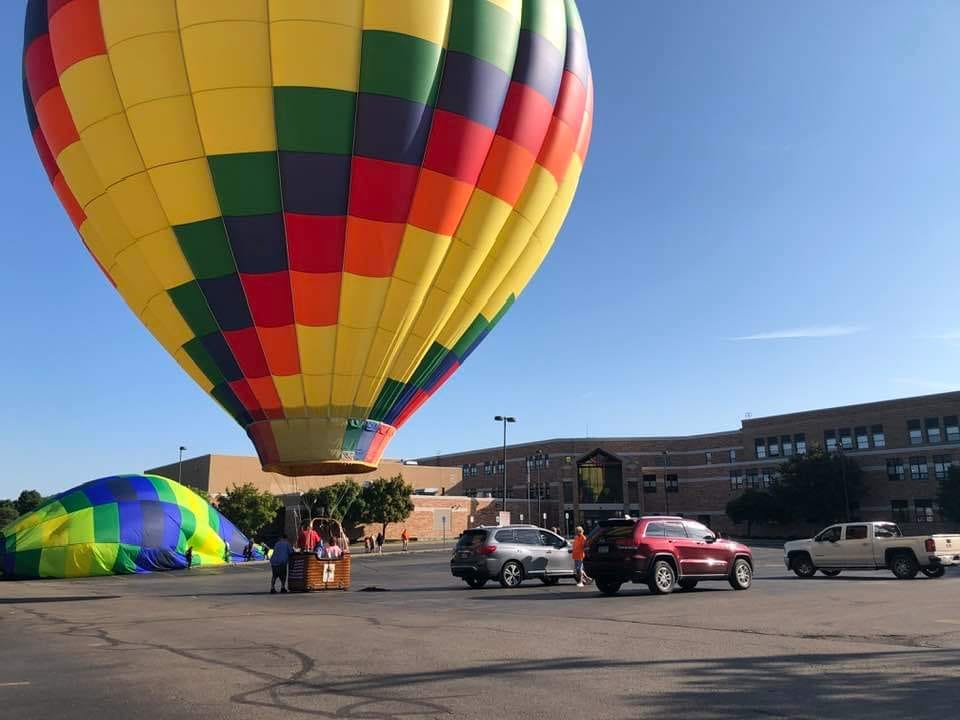In early 2025, Americans faced unusual news, including the discovery of rat lungworm parasites in two invasive snail species in Georgia. These snails, the apple and mystery snails, were found to carry the parasite, raising concerns about their potential to spread it through consumption, particularly in dishes like escargot.
However, Georgia officials have sought to ease public concerns, emphasizing that humans are unlikely to get sick from eating these snails. According to the Centers for Disease Control (CDC), the parasite does not replicate in humans and cannot be transmitted from person to person. Despite this, the snails remain a concern due to their role in damaging boat hulls.
Temecula’s New “Mile High Club”
Temecula, California, has introduced a unique service for adventurous couples looking for a romantic experience: the chance to join a “mile high club” in a hot air balloon. The company offering this service, Magical Adventure Balloon Rides, assures clients that their privacy is respected during the flight. Once the balloon reaches an altitude of one mile, the pilot discreetly pulls up a privacy screen, dons noise-canceling headphones, and refrains from observing the passengers. The service has attracted clients from all over the world, including the U.S., Europe, and Asia, with diverse participants from all walks of life.
California “Serial Squatter” Exploits Tenant Laws, Sparking Public Outrage Over Her Actions
In Malibu, California, a woman named Ellie Mae McNulty has been exploiting tenant-friendly rental laws to her advantage, becoming a so-called “serial squatter.” McNulty initially moved into the home of Alden Marin, an artist and cancer patient, under the pretense of staying temporarily.
However, her stay turned into months, during which she used Marin’s credit cards, changed the locks, and even contributed to his psychiatric emergency. McNulty demanded large sums of money to leave, and her actions have sparked public outrage. Her history includes involvement in multiple legal cases over the years, and this situation highlights the challenges of tenant laws in California.

Waffle House, a popular national chain known for its breakfast items, is dealing with the rising costs of eggs, a phenomenon referred to as “egg-flation.” The chain has implemented a 50-cent surcharge on every egg served due to price surges triggered by bird flu. Waffle House sells a staggering 270 million eggs annually, which makes the cost increase significant.
Despite the price hikes, eggs remain the most popular item on their menu, outpacing hash browns and waffles. The chain’s response is just one example of how restaurants are grappling with the effects of rising food prices.
Police Investigate $40,000 Egg Theft Amid Rising Prices and Ongoing “Egg-flation” Crisis
In Pennsylvania, a bizarre theft has raised eyebrows as state police investigate the theft of 100,000 eggs valued at $40,000. The eggs were stolen from a transport trailer at Pete and Gerry’s Organics in Greencastle on February 1. Despite the scale of the crime, no significant leads have emerged in the case yet. The theft is suspected to be linked to the high prices of eggs, exacerbated by the ongoing “egg-flation” crisis. The case remains open, and law enforcement is working hard to solve this unusual theft.
Amid the strange and unsettling events of 2025, the Doomsday Clock, a symbolic representation of global catastrophic risk, has inched closer to midnight. In late January, the Bulletin of Atomic Scientists moved the clock’s minute hand from 90 seconds to 89 seconds before midnight, marking the closest the world has ever been to a potential global catastrophe.
The Bulletin has been adjusting the clock since its creation in 1947, with input from scientists such as Albert Einstein and J. Robert Oppenheimer. The clock’s current position reflects ongoing concerns about nuclear threats, climate change, and geopolitical tensions, underscoring the fragile state of global security.
